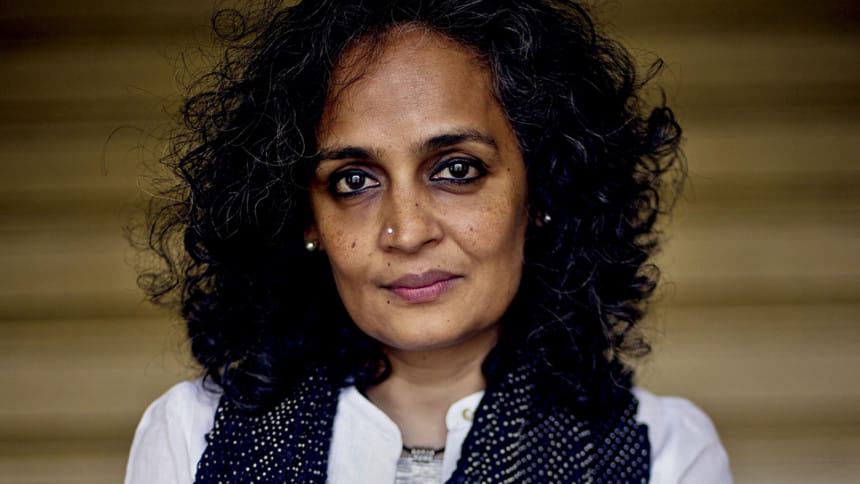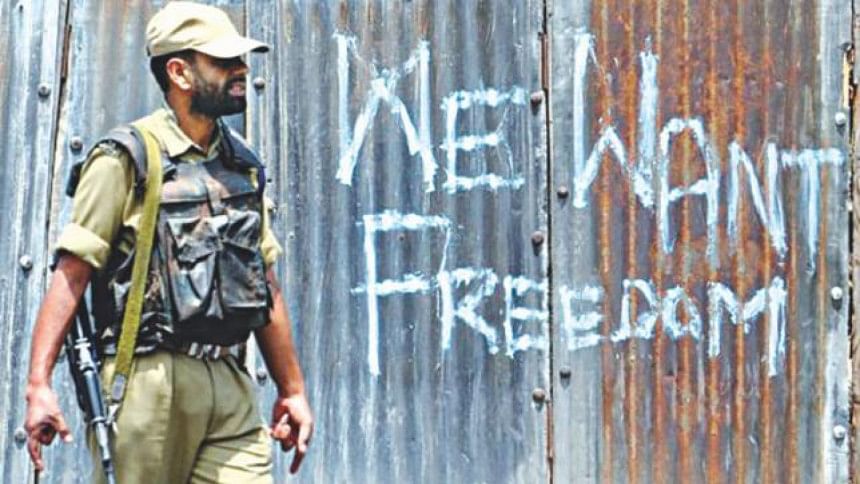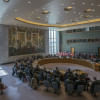Our Captured, Wounded Hearts

With his reckless "pre-emptive" airstrike on Balakot in Pakistan, Prime Minister Narendra Modi has inadvertently undone what previous Indian governments, almost miraculously, succeeded in doing for decades. Since 1947 the Indian government has bristled at any suggestion that the conflict in Kashmir could be resolved by international arbitration, insisting that it is an "internal matter." By goading Pakistan into a counter-strike, and so making India and Pakistan the only two nuclear powers in history to have bombed each other, Modi has internationalised the Kashmir dispute. He has demonstrated to the world that Kashmir is potentially the most dangerous place on earth, the flash-point for nuclear war. Every person, country, and organisation that worries about the prospect of nuclear war has the right to intervene and do everything in its power to prevent it.

On February 14, 2019, a convoy of 2,500 paramilitary soldiers was attacked in Pulwama (Kashmir) by Adil Ahmad Dar, a 20-year-old Kashmiri suicide-bomber who, it has been declared, belonged to the Pakistan-based Jaish-e-Mohammad. The attack that killed at least 40 men was yet another hideous chapter in the unfolding tragedy of Kashmir. Since 1990, more than 70,000 people have been killed in the conflict, thousands have "disappeared", tens of thousands have been tortured and hundreds of young people maimed and blinded by pellet guns. The death toll over the last 12 months has been the highest since 2009. Associated Press reports that almost 570 people have lost their lives, 260 of them militants, 160 civilians and 150 Indian armed personnel who died in the line of duty.
Depending on the lens through which this conflict is viewed, the rebel combatants are called "terrorists", "militants", "freedom fighters" or "mujahids". Most Kashmiris call them "mujahids" and when they are killed, hundreds of thousands of people—whether they agree with their methods or not—turn out for their funerals, to mourn for them and bid them farewell. Indeed, most of the civilians who were killed this past year are those who put their bodies in the way of harm to allow militants cornered by soldiers to escape.
In this long-drawn-out, blood-drenched saga, the Pulwama bombing is the deadliest, most gruesome attack of all. There are hundreds, if not thousands, of young men in the Kashmir Valley like Adil Ahmad Dar who have been born into war, who have seen such horror that they have become inured to fear and are willing to sacrifice their lives for freedom. Any day there could be another attack, worse, or less worse than the Pulwama attack. Is the government of India willing to allow the actions of these young men to control the fate of this country and the whole subcontinent? By reacting in the empty, theatrical way that he did, this is exactly what Narendra Modi has done. He has actually bestowed upon them the power to direct our future. The young Pulwama bomber could not have asked for more.
Indians who valorise their own struggle for independence from British rule and virtually worship those who led it are for the most part strangely opaque to Kashmiris who are fighting for the same thing. The armed struggle in Kashmir against what people think of as "Indian rule" is almost 30 years old. That Pakistan has (at one time officially and now mostly through non-government actors) supported the struggle with arms, men and logistics is hardly a secret. Nor is it a secret that no militant can operate in the war zone that is Kashmir if they do not have the overt support of local people. Who in their right mind could imagine that this hellishly complicated, hellishly cruel war would be solved or even mitigated in any way by a one-off, hastily executed, theatrical "surgical-strike," which turns out to have been not-so-surgical after all? A similar "strike" that took place after the 2016 attack on an Indian army camp in Uri achieved little more than inspiring a Bollywood action film. The Balakot strikes in turn seem to have been inspired by the film. And now the media reports that Bollywood producers are already lining up to copyright "Balakot" as the name of their next film project. On the whole, it has to be said that this absurd waltz looks and smells more "pre-election" than "pre-emptive."
For the prime minister of India to press its formidable air force into performing dangerous theatrics is deeply disrespectful. And what an irony it is, that while this irresponsible nuclear brinkmanship is being played out in our subcontinent, the mighty United States of America is in talks with the Taliban forces whom it has not managed to defeat or dislodge even after 17 years of straight-out war.
The spiralling conflict in the subcontinent is certainly as deadly as it appears to be. But is it as straightforward?
Kashmir is the most densely militarised zone in the world, with an estimated half a million Indian soldiers posted there. In addition to the Intelligence Bureau, the Research and Analysis Wing and the National Intelligence Agency, the uniformed forces—the army, the Border Security Force, the Central Reserve Police Force (and of course the Jammu and Kashmir Police)—each does its own intelligence gathering. People live in terror of informers, double agents and triple agents who could be anybody from old school friends to family members. Under these circumstances, an attack on the scale of what happened in Pulwama is more than just shocking. As one pithy Twitter commentator put it (she was referring to the increasingly popular Hindu vigilante practice in North India, of tracking down and lynching Muslims accused of killing cows), how is it that the BJP "can trace 3 kg of beef but cannot trace 350 kg of RDX"?
Who knows?
After the attack, the governor of Jammu and Kashmir called it the result of "an intelligence failure." A few intrepid media portals reported the fact that the Jammu and Kashmir Police had indeed raised an urgent alert about a possible attack. Nobody in the media seems overly worried about why the warning was ignored, and where, in the chain of command, the breach took place.
Tragic as it was, the Pulwama attack came as a perfect political opportunity for Narendra Modi to do what he does best—grandstand. Many of us who had predicted months ago that a BJP that was losing its political footing would call down a fireball from the skies just before elections, watched with horror as our prediction came true. And we watched the ruling party adroitly parley the Pulwama tragedy into petty, political advantage.
In the immediate aftermath of the Pulwama attack, as enraged mobs attacked Kashmiris who worked and studied in mainland India, Modi kept dead quiet and reacted only after the Supreme Court said it was the government's duty to protect them. But after the airstrikes, he was quick to appear on TV to take credit, sounding for all the world as though he had personally flown the planes and dropped the bombs. Immediately India's roughly 400 24/7 news channels, most of them unapologetically partisan, set about amplifying this performance with their own personal "inputs". Using old videos and fake facts, their screaming anchors, masquerading as frontline commandos, orchestrated an orgy of crazed, triumphalist nationalism, in which they claimed the airstrikes had destroyed a Jaish-e-Mohammad "terror factory" and killed more than 300 "terrorists". The next morning, even the most sober national newspapers followed suit with ridiculous, embarrassing headlines. The Indian Express said: "India Strikes Terror, Deep in Pakistan." Meanwhile, Reuters, which sent a journalist to the site in Pakistan where the bombs had actually fallen, reported only damage to trees and rocks and injuries sustained by one villager. Associated Press reported something similar. The New York Times said "Analysts and diplomats in New Delhi said the targets of the Indian airstrikes were unclear, as any terrorist groups operating along the border would have cleared out in recent days after Prime Minister Narendra Modi of India vowed retaliation over the Kashmir attack."
The mainstream Indian media did not carry the Reuters report. So, for the bulk of India's voting people who don't read the New York Times, their prime minister had dismantled terrorism forever.
For the moment at least, it looked as though Modi had completely out-manoeuvred his political opponents, who were reduced to tweeting in praise of India's brave pilots. Meanwhile, he and his men were out electioneering. Doubters and dissenters were terrorised by Hindutva trolls, charged with being anti-national, or just debilitated by the fear of the on-call lynch mob that seems to lurk at every street corner in North India.
But things can change in a day. The sheen of false victory faded quickly after Pakistan struck back, shot down a fighter plane and captured a pilot of the Indian Air Force—Wing Commander Abhinandan Varthaman. Once again, the BJP's see-sawing electoral prospects have begun to look distinctly less rosy.
Leaving aside the business of electoral politics and the question of who will win the next elections, Modi's actions are unforgiveable. He has jeopardised the lives of more than a billion people and brought the war in Kashmir to the doorsteps of ordinary Indians. The madness on television, fed to people like an IV drip morning, noon and night, asks people to lay aside their woes, their joblessness, their hunger, the closing down of their small businesses, the looming threat of eviction from their homes, their demands that there be an enquiry into the mysterious deaths of judges, as well as into what looks like the biggest, most corrupt defence deal in the history of India, their worries that if they are Muslim, Dalit or Christian they could be attacked or killed—and instead vote, in the name of national pride, for the very people that have brought about this devastation.
This government has wounded India's soul so very deeply. It will take years for us to heal. For that process to even begin, we must vote to remove these dangerous, spectacle-hungry charlatans from office.
We cannot afford to have a prime minister who, on a whim, has broken the back of the economy of a country of a billion people by declaring overnight, without consulting anybody, that 80 percent of a country's currency is no longer legal tender. Who in history has ever done this? We cannot have a prime minister of a nuclear power who continues to shoot for a movie about himself in a national park while a huge crisis befalls the country and then airily declares that he has left the decision of what to do next to the "Sena"— the army. Which democratically elected leader in history has ever done this?
Modi has to go. The quarrelsome, divided, unstable coalition government that might come in his place is not a problem. It is the very essence of democracy. It will be far more intelligent and far less foolhardy.
There remains the matter of the captured wing commander. Whatever anybody's opinion of him, and whatever Pakistan's role has been in the Kashmir conflict, Imran Khan, the prime minister of Pakistan, has acted with dignity and rectitude throughout this crisis. The Indian government was right to demand that Varthaman be accorded all the rights that the Geneva Conventions accord a prisoner of war. It was right to demand that the International Committee of the Red Cross (ICRC) be given access to him while he was in Pakistan's custody. Prime Minister Imran Khan announced that as a gesture of goodwill, the wing commander would be released.
Perhaps India can offer the same courtesy to its political prisoners in Kashmir and the rest of the country: protection of their rights under the Geneva Conventions, and access to the ICRC?
The war that we are in the middle of, is not a war between India and Pakistan. It is a war that is being fought in Kashmir which expanded into the beginnings of yet another war between India and Pakistan. Kashmir is the real theatre of unspeakable violence and moral corrosion that can spin us into violence and nuclear war at any moment. To prevent that from happening, the conflict in Kashmir has to be addressed and resolved. That can only be done if Kashmiris are given a chance to freely and fearlessly tell the world what they are fighting for and what they really want.
Dear World, find a way.
This article was originally published in HuffPost India on March 3, 2019 and has been reprinted with the permission of the author.
Arundhati Roy is an award-winning author. She is the author of The God of Small Things, The Ministry of Utmost Happiness, and the forthcoming collection of essays, My Seditious Heart.










Comments